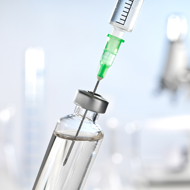
Study reveals corticosterone has fewer side effects
People unable to replace essential steroids in their bodies may soon benefit from improved therapy, thanks to research by the University of Edinburgh.
Published in the journal Science Translational Medicine, the study describes a new treatment that may help those unable to produce corticosteroids.
Scientists say the treatment has fewer side effects and could help provide a safer alternative for treatments like Addison’s disease and congenital adrenal hyperplasia.
Corticosteroids are a class of steroids that help to regulate metabolism and blood pressure. They also help the body to cope with physical stress.
People who suffer from disorders of the adrenal gland need steroid treatment to avoid the risk of potentially fatal illness during physical stress.
Usually, therapy involves replacing one of the steroids they cannot replace - cortisol - with a medication. But this method affects fat tissue and can lead to excessive weight gain, high blood pressure and type 2 diabetes.
In the study, researchers from the University of Edinburgh’s British Heart Foundation (BHF) Centre for Cardiovascular Science examined cortisol - another steroid that is naturally produced by the body.
The team found that, when tested on mice, the effects of corticosterone on fat cells were reduced compared with cortisol. They discovered this was because fat cells have a pump that removes corticosterone.
Testing the therapy in a small group of Addison’s patients, the team found that corticosterone was just as effective as cortisol. Yet it had reduced effects on fat cells.
“These findings suggest that corticosterone could provide a safer alternative to traditional cortisol replacement therapy for conditions such as Addison’s disease and congenital adrenal hyperplasia,” said professor Brian Walker, head of the BHF centre for Cardiovascular Science.
The researchers hope that, with further research, their findings may lead to improved therapies for other conditions that respond to steroid treatment, like rheumatoid arthritis and asthma.



 FIVP has shared a survey, inviting those working in independent practice to share their views on the CMA's proposed remedies.
FIVP has shared a survey, inviting those working in independent practice to share their views on the CMA's proposed remedies.